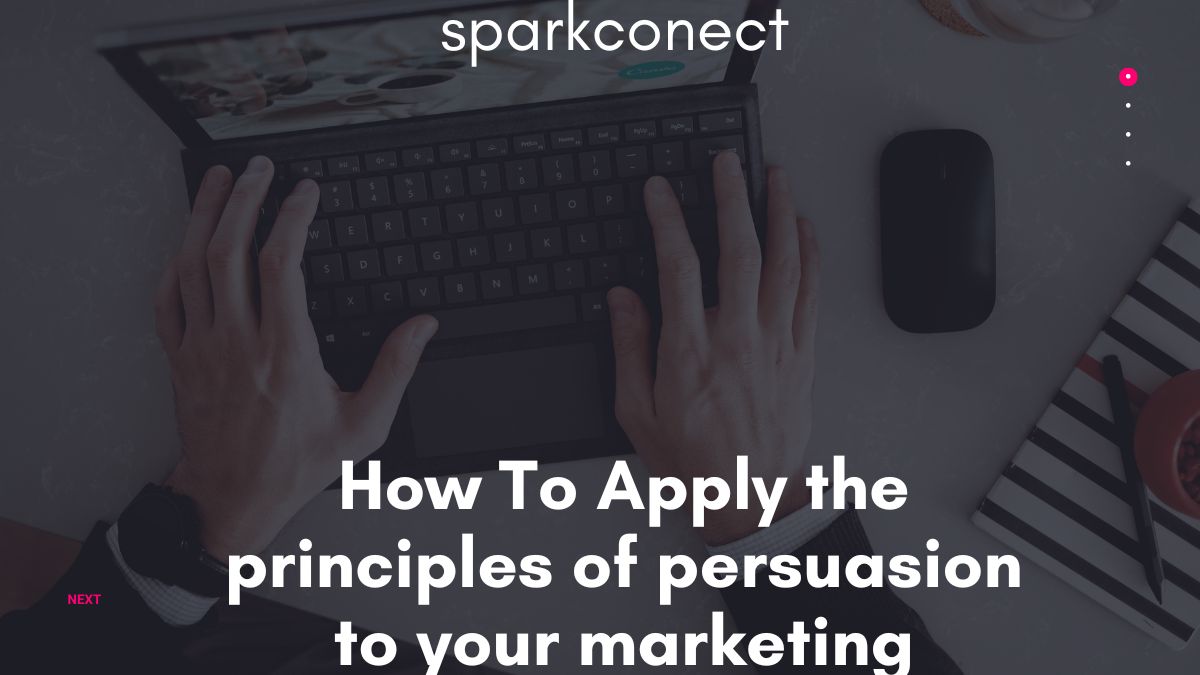Dr Robert Cialdini wrote about 6 principles of persuasion used by marketers to increase conversions of potential customers across various industries. The ability to influence people is compelling, especially when selling your product and services. His persuasive techniques can help small businesses increase conversion rates in every part of their marketing strategy. In this post, I will teach you how to use the six principles of persuasion to boost your conversion.
What is the Principle of Persuasion?
http://https://youtu.be/cFdCzN7RYbw
Dr Robert Cialdini developed 6 persuasion principles which can be used to persuade or influence customers to make decisions about your product. They are the principle of reciprocity, scarcity, commitment and consistency, authority, liking, and consensus. As Robert Cialdini explained, persuasion is a way to persuade people to take specific actions using six principles: reciprocity, scarcity, authority, commitment and consistency, liking and consensus.
7 Cialdini Principles of Persuasion
1. Reciprocity
The first principle is reciprocity which states that people are wired to return favours and pay back debts. As a business owner, you can offer your customers something valuable, so they feel indebted to you to give you something in return. For example, let’s say you offer an ebook or downloadable templates. They might be persuaded to provide you with their email or phone number or sign up for your newsletter. The idea here is not what you give but how you give it. You should be the first person to provide and make sure what you give is personalized and unexpected. People that have downloaded your ebook or used your templates are more likely to engage more with you if you bring an offer to them.
Tips to use at the reciprocity stage
- Offer something first – allow them to feel indebted to you
- Offer something exclusive – will enable them to feel special
- Personalize the offer – make sure they know it’s from you
Examples of what you can offer at the reciprocity stage include
- Ebooks
- Free Templates
- Free Trials
- Webinars
- Blogs
- Free Training
2. Scarcity
The second one is scarcity. Do you know people feel a sense of panic when they know something is scarce or will end soon? Let’s face it we are more likely to purchase something if we’re told that it’s the “last one” or that a “special deal” will soon expire. This kind of tactic is best for retargeting through email marketing. So, for example, if you are a travel agency, you can write something like “You missed it! We reserved our last available room at Eko suite.” or “Last chance! The secret to paid media series is going away”. You can use the time scarcity technique too. Something like it will end in the next 6 hours.
- Day/week deals(Grab your 20% discount within the next seven days)
- Limited time(This deal expires in the next 48 hours)
- Limited stock(only five items remaining, grab yours now)
- Exclusivity
- A limited number of spots
3. Authority
Robert mentioned that people would follow what authority figures say or do. This is where influential marketing comes to play. People are more likely to convert if your brand is associated with an authority figure. Think of some authority figure you can speak with to help promote your brand.
Some examples are;
- Well-known people(celebrities, movie actors and actresses)
- Prices
- Claims
- Titles
- Experience(people with significant experience in your industry)
- Knowledge
4. Consistency and commitment
The principle of commitment states that humans have a deep need to be consistent. For example, let’s say you get your website visitor to commit to something small like signing up for an ebook or newsletter. It increases the chance that those site visitors will eventually see themselves as customers.
Consistency ties directly to the last point, the idea of putting engaging and valuable content out there. As a business owner, once you are committed to something, you will likely go through and deliver on that commitment. You can start with little commitment, leading to a more significant commitment.
- Getting them to download your ebook
- Follow your social media page
- Subscribing to your email newsletter
- Quizzes
- Exit-intent pop-up
- Welcome back pop-up
These mini-conversions might eventually lead them to a more effective conversion.
5. Socialproof/Consensus
Cialdini defined social proof as people doing what they observe. For example, people are more likely to buy your product if others use it. This is where testimonials and reviews come in. Publish testimonials and reviews on your website. This way, people are more willing to buy because others have used the product or service.
6. Liking
Liking is based on sharing something similar or a more superficial interest, like physical attractiveness. Robert believes that you are more likely to be influenced by people you like or someone attractive.
This is where your about page comes in. Try to humanize your about page by including your staff bios, hobbies and other personal details. This show that you are also human.
Bonus
7. Unity
People are more influenced when they belong to a particular group. The unity principle was later added to the list, which applies when you create a group feeling. For example, if you want to encourage people to download an ebook on your website, don’t use something like “300 people have downloaded this ebook”. Still, “about 1,500 people who want to grow their business, just like you, have downloaded this ebook”.

